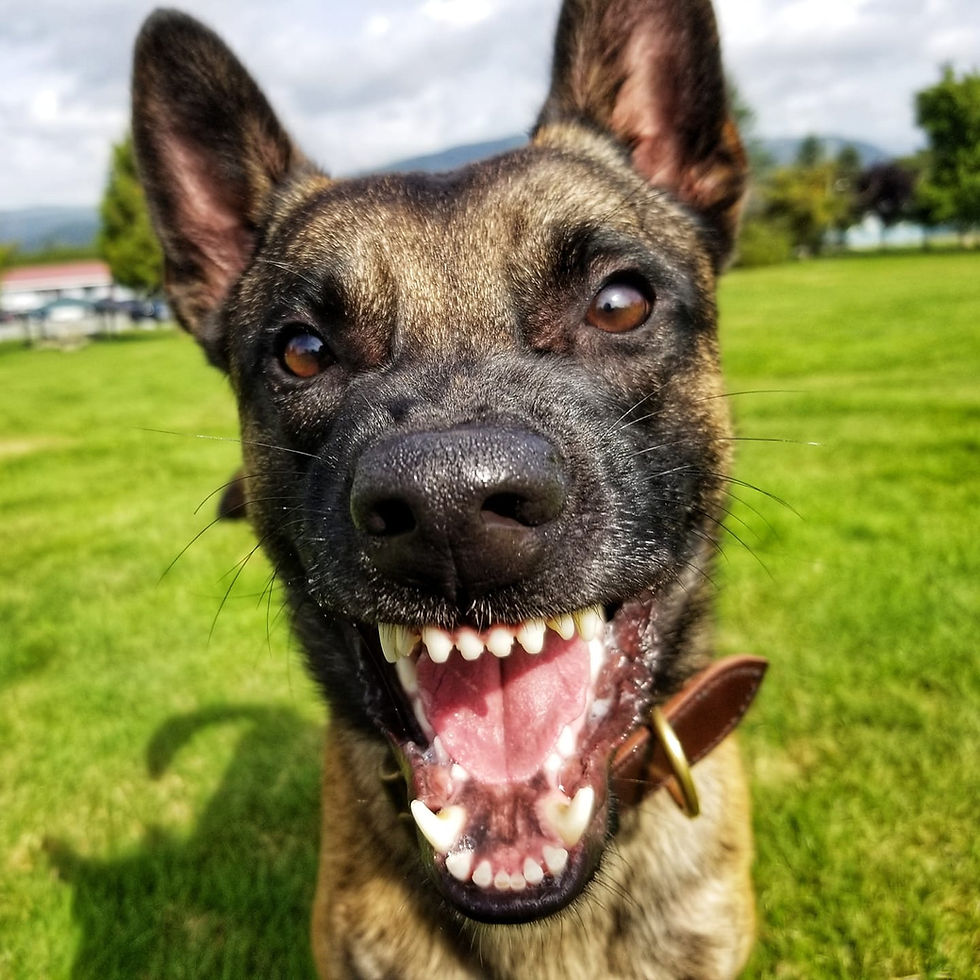Is my dog protecting me ❓❓
- Kristi MacLeod
- Jul 21, 2022
- 3 min read
People regularly mistake their dog's reactivity thinking that their dog is protecting them (most often from an imaginary threat). This often results in the problem going unresolved for a long period of time.
➡️ Dealing with and managing your dog's reactivity can be a frustrating experience. It can greatly impact your life and relationship with your dog. It can limit where you walk your dog, what time of day you can safely walk your dog as well as take away the option of going to pet friendly stores, or eating at pet-friendly outdoor restaurant patios. The list goes on and on, but ultimately, reactivity can diminish your dog's quality of life and the quality time that you get to spend with your furry friend.
❓❓What is reactivity❓❓
➡️ Reactivity is when your dog overreacts to a stimulus. The stimulus could be another dog, person or an object (car, umbrella etc.). The dog may bark, growl and lunge forward, which can often look like the dog is being protective of it's owner. If allowed to get too close to the trigger, your dog may even bite the thing that has triggered it.
➡️ Reactivity however, is most often a result of the dog being fearful of the stimulus that it is reacting to. Reactivity however, can also be the result of frustration.
➡️ When your dog is fearful and displaying reactivity, he is telling the other dog, or person, to GO AWAY. Your dog perceives the other dog, or person to be a threat and is telling them to go away to avoid further conflict.
➡️ The truth is that, there is no real threat present. The dog, or person that your dog is reacting to is simply minding their own business and has no intention of confronting your dog.
❓❓So, why does this even matter❓❓
This matters for a number of reasons.
➡️ As I stated earlier in this post, this affects your dog's quality of life. Your dog is living in a constant state of fear and hyper-vigilance. That doesn't sound like a very enjoyable way to live, does it?
➡️ It also impacts YOUR life as their owner and guardian. Again, as it was stated earlier in the post, you may not be able to do the activities that you want to do with your dog for fear of how they'll react. You may not be able to have your dog around guests in your home, or even take them out for a walk.
➡️ The more a dog gets to practice these behaviours, the harder they become to change. Not only that, but the more they practice and see the desired result (the trigger going away), the faster they will become at using this tactic.
➡️ Maybe your dog reacted to a dog, or person once from 6 feet away and that trigger went away as a result. Your dog thinks, "Wow, that really worked! The scary thing went away when I barked and lunged." So, next time, your dog reacts when the trigger is 10 ft away, and then maybe 15 ft, 20 ft etc... Eventually, your dog will be reacting to things that are down the block‼️
➡️ 🐾 Resolving reactivity takes time, patience and a bit of skill, but it can most certainly be done. Before tackling this issue on your own however, I suggest consulting with and most likely working alongside a professional who can coach you through not only teaching your dog some new skills, but also what body language and subtle cues to look for in your dog to avoid accidentally making the issue worse. 🐾⬅️





Comments